Bumblebees are crucial to nature because they help with pollination. These tiny fuzzy insects have distinctive features like pile-covered bodies and bold colors, which help them ward off predators. They have a lifespan of one year, so unlike honeybees, they don't make and store honey for the winter. As per a recent report by Nature, scientists were surprised to find out that bumblebees learn some behaviors from their peers at a level of complexity previously thought to be unique to humans and our ancestors.
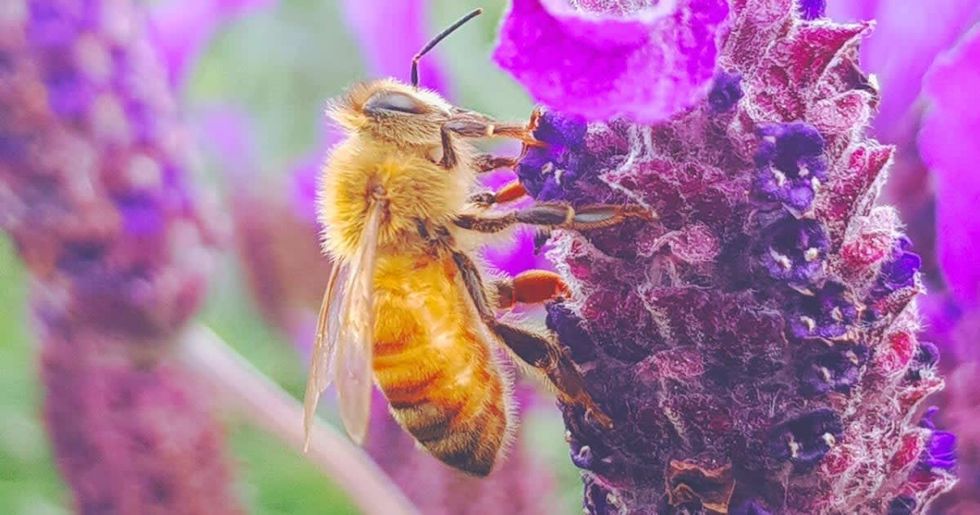
This study was conducted by Nature to answer two questions: First, could humans train bees to do a complicated task? Second, could bees pass on this knowledge? For this, they designed a two-step puzzle box. The first step involved removing a blue tab. With the blue tab removed, the bee could move forward to the next step by pushing the red tab around to get to the yellow target, where the reward (sucrose solution) was kept.

As much as it sounds incredible, this experiment had its share of obstacles in the early stages. Initially, the experimenters failed to train demonstrator bees to perform the unrewarded first step without providing a temporary reward linked to this action. However, this experiment slowly succeeded after a bunch of untrained bees learned to open the two-step box without needing a reward after the first step.
Apart from this experiment, there has been evidence that sheds light on the fact that similar to humans, animals can exhibit a cumulative nature with sequential behaviors building on previous ones. Dr. Lars Chittka, a professor of sensory and behavioral ecology, explained the process through his analogy: "Imagine you dropped some children on a deserted island, they might with a bit of luck survive. But they would never know how to read or to write because this requires learning from previous generations."
The experiment brought out fruitful results. It provided evidence for bumblebees having the capability of social learning, and possibly cultural transmission. For centuries, we have believed that humans are distinguished from other species due to our ability to think critically and build complex things. However, researchers from this experiment pointed out that humans are not the only species that can facilitate social learning. Even bumblebees have their share of this unique trait.

















 Pexels | Photo by Andrea Piacquadio
Pexels | Photo by Andrea Piacquadio
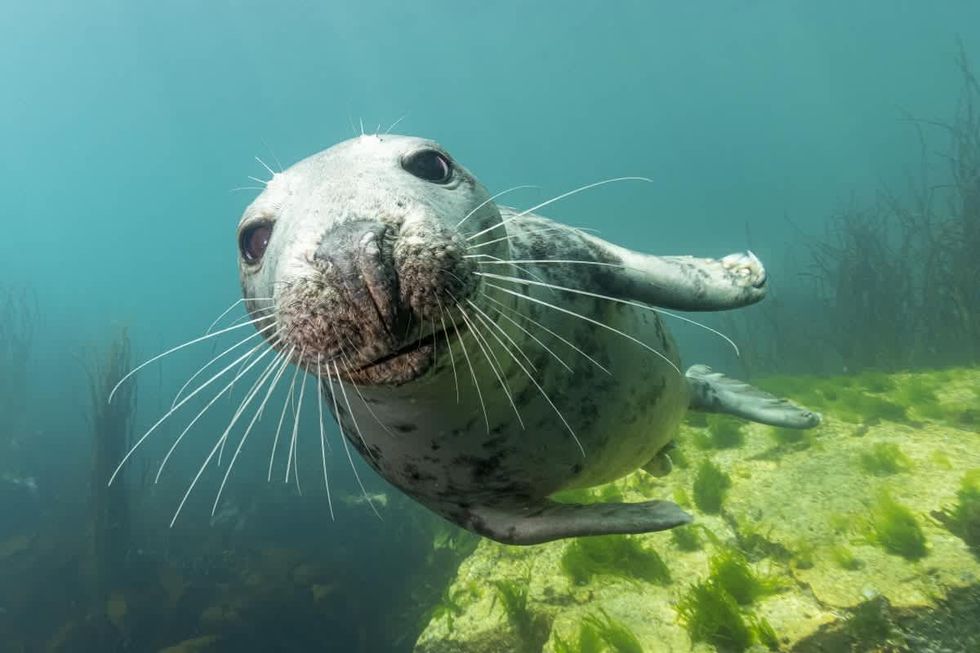 An Atlantic grey seal looking at the camera underwater. (Representative Image Source: Getty Images | Mark Chivers)
An Atlantic grey seal looking at the camera underwater. (Representative Image Source: Getty Images | Mark Chivers)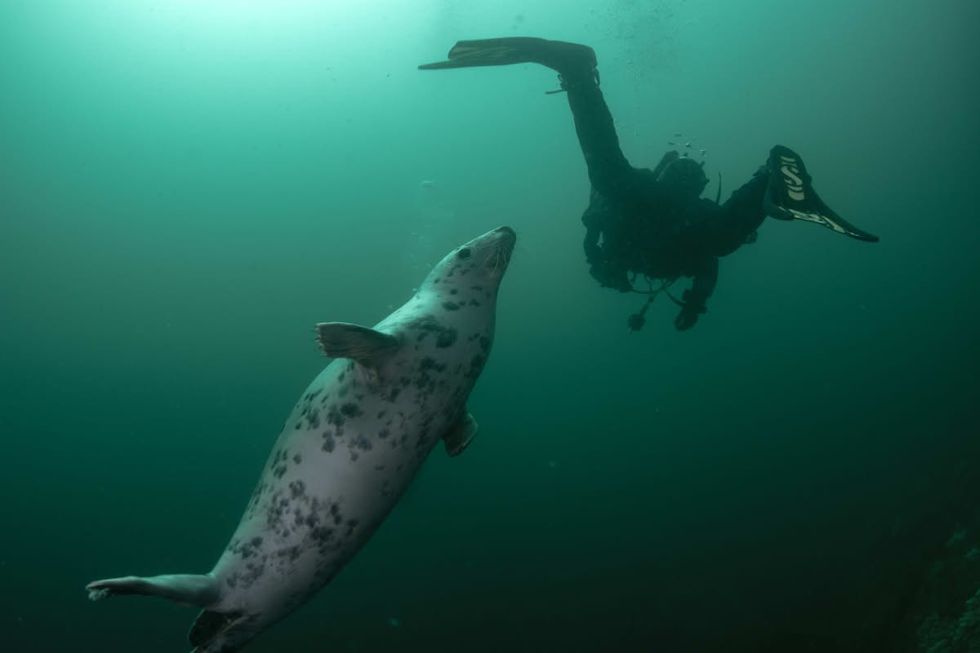 A grey seal swims up to a scuba diver. (Representative Image Source: Getty Images | Huw Thomas)
A grey seal swims up to a scuba diver. (Representative Image Source: Getty Images | Huw Thomas)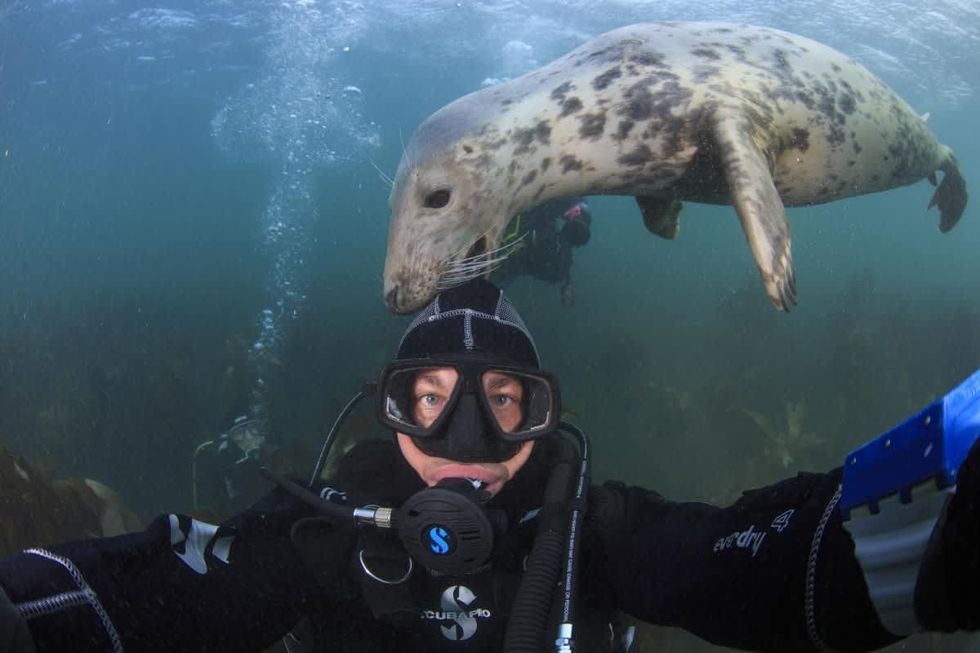 A Grey seal nibbles at the hood of a scuba diver. (Representative Image Source: Getty Images | Bernard Radvaner)
A Grey seal nibbles at the hood of a scuba diver. (Representative Image Source: Getty Images | Bernard Radvaner)
 Image Source: Seth Rogen and Lauren Miller Rogen co-host the HFC Austin Brain Health Dinner on September 30, 2023, in Austin, Texas. (Photo by Rick Kern/Getty Images for Hilarity for Charity)
Image Source: Seth Rogen and Lauren Miller Rogen co-host the HFC Austin Brain Health Dinner on September 30, 2023, in Austin, Texas. (Photo by Rick Kern/Getty Images for Hilarity for Charity) Image Source: Seth Rogen and Lauren Miller Rogen attend the 95th Annual Academy Awards on March 12, 2023 in Hollywood, California. (Photo by Arturo Holmes/Getty Images )
Image Source: Seth Rogen and Lauren Miller Rogen attend the 95th Annual Academy Awards on March 12, 2023 in Hollywood, California. (Photo by Arturo Holmes/Getty Images ) Image Source: YouTube |
Image Source: YouTube |  Image Source: YouTube |
Image Source: YouTube | 
 Image Source: In this handout photo provided by the National Science Foundation, the Event Horizon Telescope captures a black hole at the center of galaxy M87 in an image released on April 10, 2019. (National Science Foundation via Getty Images)
Image Source: In this handout photo provided by the National Science Foundation, the Event Horizon Telescope captures a black hole at the center of galaxy M87 in an image released on April 10, 2019. (National Science Foundation via Getty Images)
 Representational Image Source: Pexels I Photo by Nataliya Vaitkevich
Representational Image Source: Pexels I Photo by Nataliya Vaitkevich Representative Image Source: Pexels | Kampus Production
Representative Image Source: Pexels | Kampus Production
 Image Source: Destroyed vehicles lie near the rubble after the earthquake and tsunami devastated the area on March 16, 2011, in Minamisanriku, Japan. The 9.0 magnitude strong earthquake struck offshore on March 11 at 2:46 pm local time, triggering a tsunami wave of up to ten meters which engulfed large parts of north-eastern Japan. (Photo by Chris McGrath/Getty Images)
Image Source: Destroyed vehicles lie near the rubble after the earthquake and tsunami devastated the area on March 16, 2011, in Minamisanriku, Japan. The 9.0 magnitude strong earthquake struck offshore on March 11 at 2:46 pm local time, triggering a tsunami wave of up to ten meters which engulfed large parts of north-eastern Japan. (Photo by Chris McGrath/Getty Images) Representative Image Source: Pexels | Pixabay
Representative Image Source: Pexels | Pixabay Representative Image Source: Pexels | Stuart Pritchards
Representative Image Source: Pexels | Stuart Pritchards
 Image Source: Musician Keith Urban and actress Nicole Kidman arrive at the 2009 American Music Awards at Nokia Theatre L.A. Live on November 22, 2009 in Los Angeles, California. (Photo by Jeffrey Mayer/WireImage)
Image Source: Musician Keith Urban and actress Nicole Kidman arrive at the 2009 American Music Awards at Nokia Theatre L.A. Live on November 22, 2009 in Los Angeles, California. (Photo by Jeffrey Mayer/WireImage)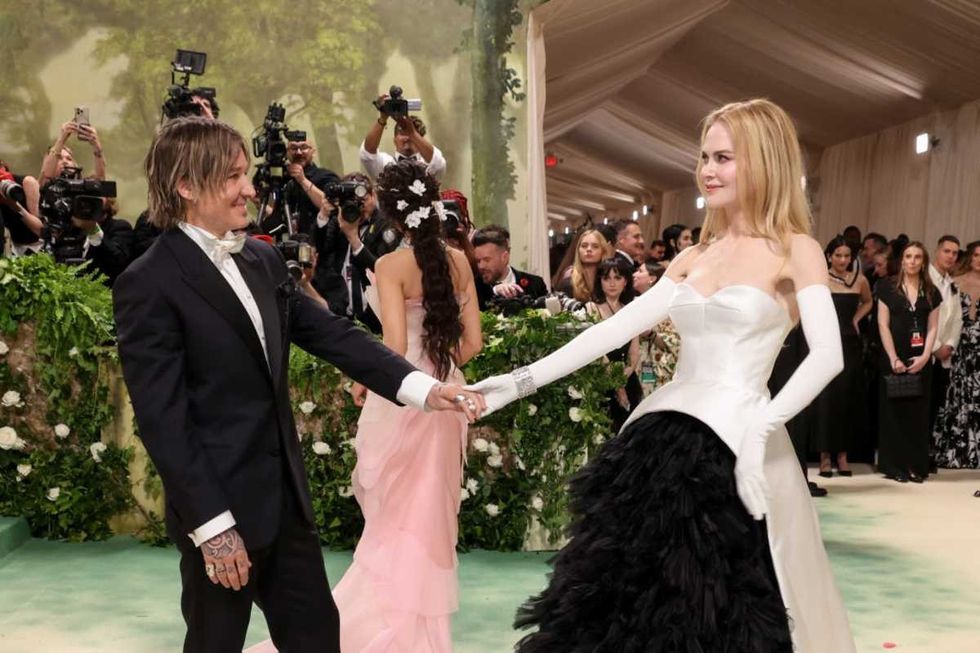 Image Source: Keith Urban and Nicole Kidman attend The 2024 Met Gala on May 06, 2024 in New York City. (Photo by John Shearer/WireImage)
Image Source: Keith Urban and Nicole Kidman attend The 2024 Met Gala on May 06, 2024 in New York City. (Photo by John Shearer/WireImage) Image Source: Musician Keith Urban and actress Nicole Kidman arrive at the Oscars on February 24, 2013 in Hollywood, California. (Photo by Jeff Vespa/WireImage)
Image Source: Musician Keith Urban and actress Nicole Kidman arrive at the Oscars on February 24, 2013 in Hollywood, California. (Photo by Jeff Vespa/WireImage)
 Representative Image Source: Pexels | August de Richelieu
Representative Image Source: Pexels | August de Richelieu Representative Image Source: Pexels | August de Richelieu
Representative Image Source: Pexels | August de Richelieu Representative Image Source: Pexels | Djordje Vezilic
Representative Image Source: Pexels | Djordje Vezilic Representative Image Source: Pexels | Fauxels
Representative Image Source: Pexels | Fauxels